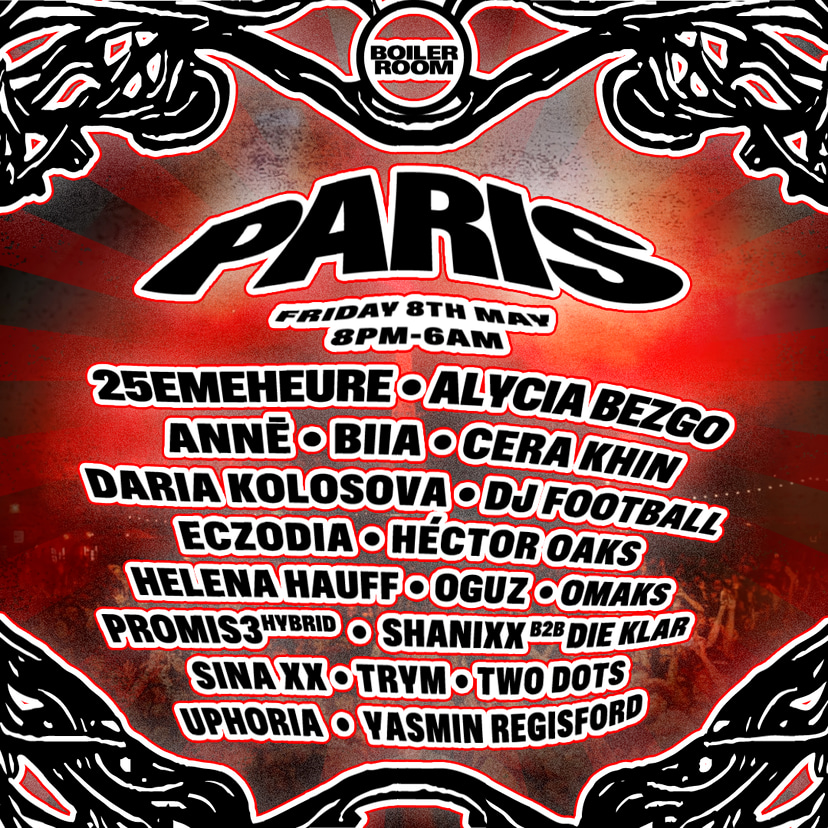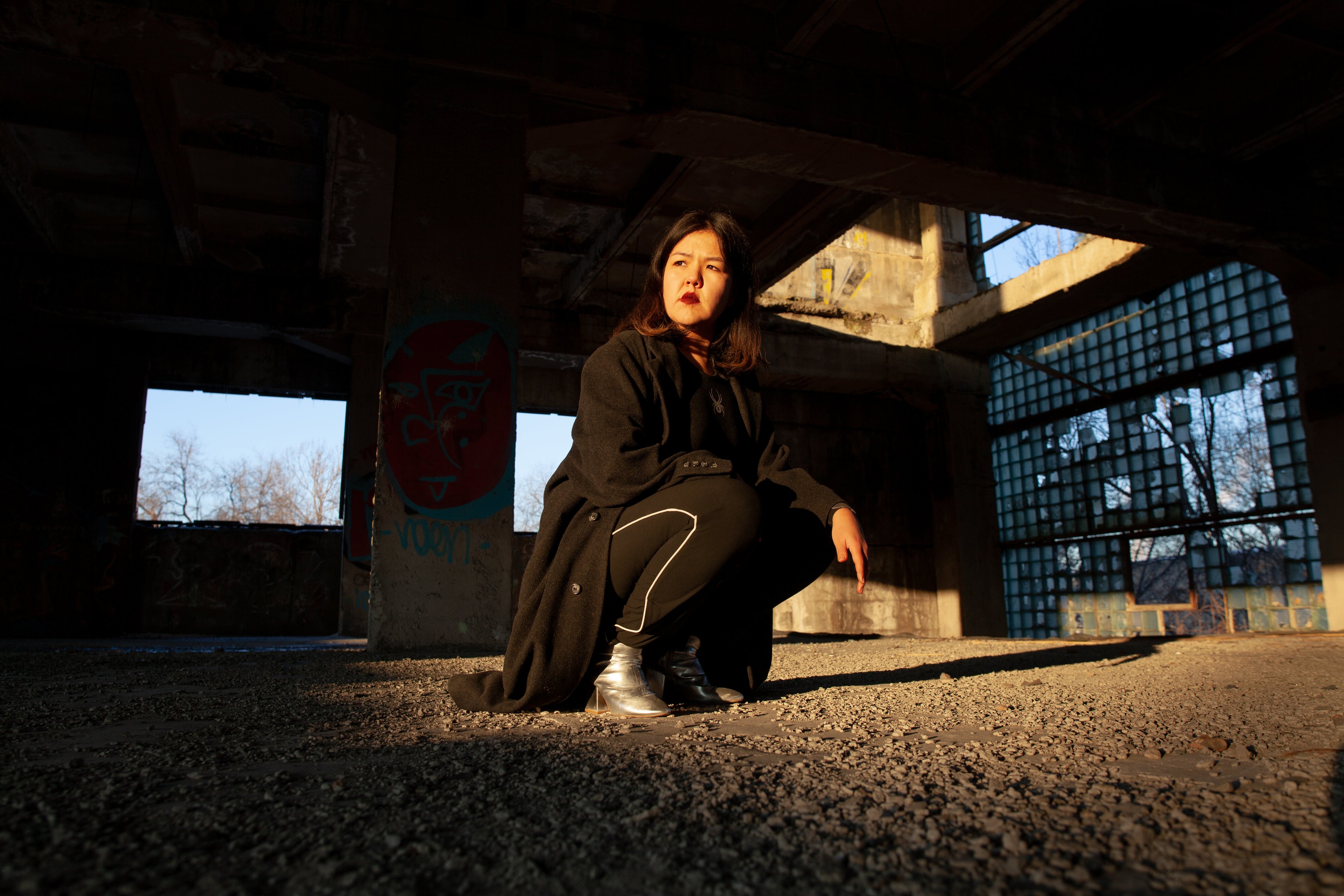
Nazira’s ZVUK: antagonistic raving in Kazakhstan
Meet the Kazakhstani techno DJ spearheading a cultural movement through challenging club sounds.
“There can be 100 people in the room... and 99 don’t believe in you. All it takes is one to change everything.” Lady Gaga, 2018.
Gaga's viral quote perfectly sums up Nazira’s tireless faith in ZVUK, a progressive rave that's the first of its kind in ex-Soviet Kazakhstan. Nazira's laid back and self-effacing vibe is quickly eclipsed by bucketloads of willpower and foresight; at only 28, the DJ and promoter is responsible for building her local alternative nightlife from the ground up.
Nazira’s name has been cropping up on techno lineups over the past three years, as she’s been collaborating with some of the world’s most exciting collectives. Among her recent personal milestones, she co-organised the first Unsound Dislocation in Kazakhstan; became a resident at Berlin’s Room 4 Resistance; and spoke about techno-activism on a panel hosted by Discwoman in Poland. Over New Year’s eve last month, she brought her sizzling rhythms to Fusion Mes Couilles’s clammy car park rave in Paris, casually sending the dancefloor into a frenzy. Soon after, she featured in Resident Advisor’s podcast series, a contribution as sonically unapologetic and confident as herself.
Nazira’s love for unsettling club sounds, weaving together leftfield techno and EBM, acid and industrial, goes beyond a pure matter of taste. She is set on representing the New East scene abroad and is fiercely committed to Almaty, a city whose experimental music landscape was practically barren three years ago.
This void motivated her to start ZVUK, as well as a bigger goal to bring some release and a sense of freedom to young Kazakhstanis living in a stiff cultural context. Rather than straight up civic organisation, difficult in a country where political dissent is impossible, Nazira’s approach is to use challenging club music to emancipate new audiences.
Almaty is the biggest city in Kazakhstan, the world’s largest landlocked country. At the crossroads between Asia and Europe, the ex-capital is a contrasting cityscape of Soviet collectivist architecture and post-communist high rises. It’s also a melting pot where Islam and nomadic Kazakh cultures live side by side. “We’re right in the middle between Russia and China”, Nazira explains, “and we’ve got 130 nationalities coexisting together. Visitors are amazed at how stable our country is.”
This stability might have to do with the surrounding autocracy however. Kazakhstan’s president has been in power since the country was created 28 years ago, in the wake of USSR’s collapse. On paper, this is a democratic country; but it is often mired in corruption and human rights abuses. Freedom of speech and protest are still rights that are being fought for daily.
ZVUK emerged against this tense political backdrop, but the night has not encountered any problems so far. Nazira, who was born the exact same year Kazakhstan was created, say that most people there do not consider art as something that can lead to change. Far from claiming that ZVUK can transform society entirely, Nazira and her crew want to bring a spirit of metamorphosis to their local community.
“I wanted to bring some challenging sounds here, push stuff, provoke something”
Nazira grew up in a small town in Kazakhstan, but her club epiphany actually happened in Scotland. Studying Molecular Biology at St Andrews, Nazira made regular trips to Glasgow’s mythic Sub Club. There she was exposed to the basslines and breakbeats of UK club music, developed her style and tastes and took up DJing.
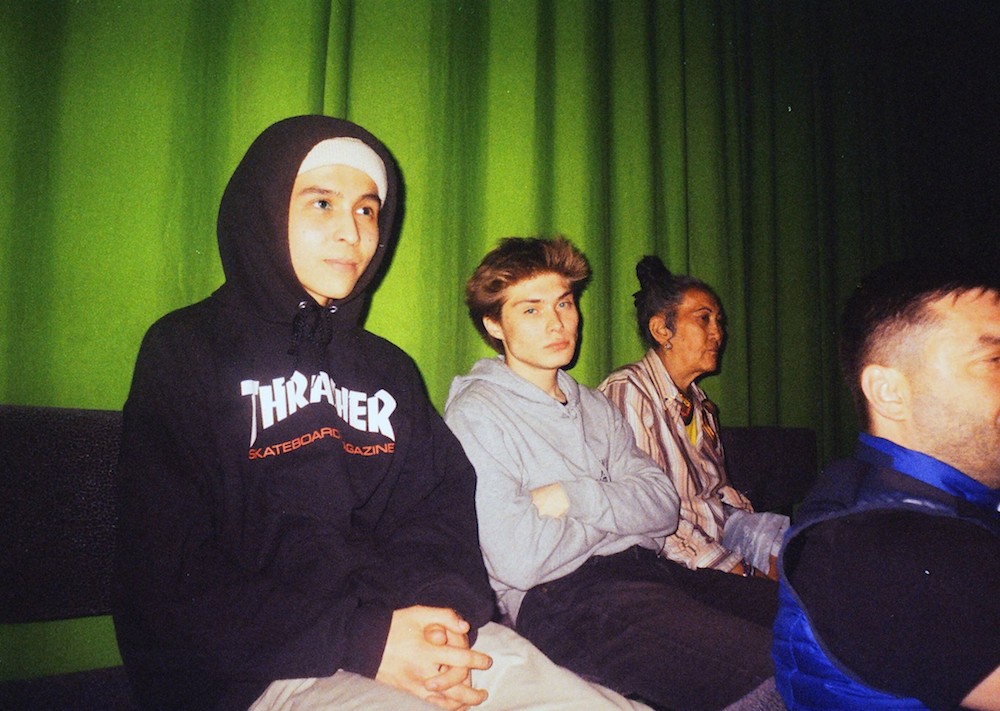
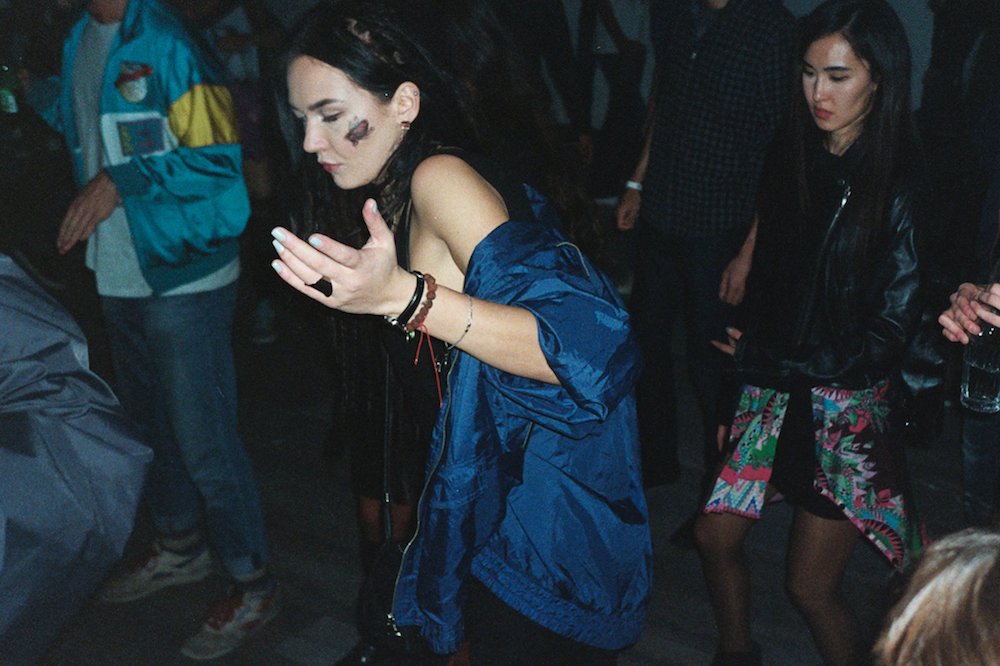
She returned to Almaty in 2013 to start a day job in agricultural research, and encountered a few electronic music parties; but no real tangible cultural movement. She joined some promoter groups, but didn’t recognise herself in their “elitist and judgmental” ethos. “The crowd had to be fashionable. For me it was really important to create a party where no one cares who you are.”
As she decided to forge her own way, the first hurdle Nazira encountered was a lack of local artists that suited her vision. For the first ZVUK party in 2016, she was delighted to see an artist she booked play a 30-minutes live drone set during prime time. It set the tone perfectly. “I wanted to communicate our night was going to be different.”
Momentum gathered when Mat Schulz, co-founder and artistic director of Unsound Festival, witnessed Nazira DJ in an old WWII bunker while on a Central Asian tour. Understanding that her vision matched his, Schulz suggested to Nazira to co-organise Dislocation Almaty, the satellite event for the 2017 edition of Unsound.
“We do everything together”
The success of Dislocation Almaty, a 1200-people event, gave Nazira confirmation she was doing something right. Soon after she invited her best friends to help her run ZVUK, expanding to a team of six. The club night has been evolving ever since, attracting more varied crowds and infusing new life into Almaty.
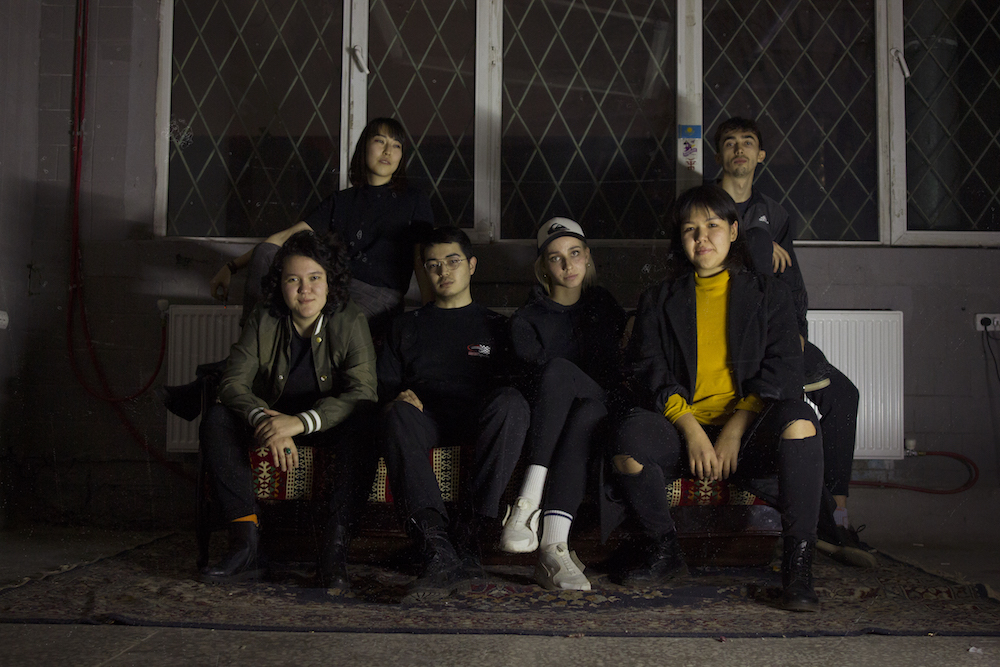
Nurturing local talent through ZVUK-run workshops is integral to their ethos. Since she started, Nazira has developed DJs like E.T and Aisha, who are now residents at ZVUK alongside her. These classes have had an indirectly beneficial effect on the local nightlife, as they’ve lead to other club nights starting. Against all odds, Almaty now has disco and funky house parties. “I wanted to grow people, no matter what they do”, Nazira says. “This is a sign our party is pushing people to do their own things”.
“We are the first generation trying to break things”
Striving for inclusivity, ZVUK offers a home for a young generation breaking free from past conventions. The generational gap between Kazakhstanis who experienced life under Communism and those of a similar age to Nazira, born on the other side of the ideology, still has a profound effect on the country’s society today.
The previous generation had no choice but to embrace traditional structures such as a stable jobs and strong family units, unencumbered by the boundless options that characterise today’s world. “When you finished university during Soviet times, the State would immediately get you a job,” Nazira states, adding that her parents’ generation “did what they were told to do, and they saw it as the only way to live. The change was very sad, and influenced the way we were brought up.”
“Most people here don’t really get what ZVUK is about”
Eastern traditions also inform Kazakhstani society’s conservative outlook. Women particularly feel the pressures of societal expectations, and things are even worse in the LGBTQI and non-binary community. “I think 60-80% of Kazakhstan think being gay is a disease you can cure,” Nazira laments. “We obviously cannot change the mentality of the whole country, but at least we can create a space that is open to this community.” As a progressive club space facilitating fluidity, ZVUK is a UFO standing in stark contrast with mainstream Kazakhstani values.
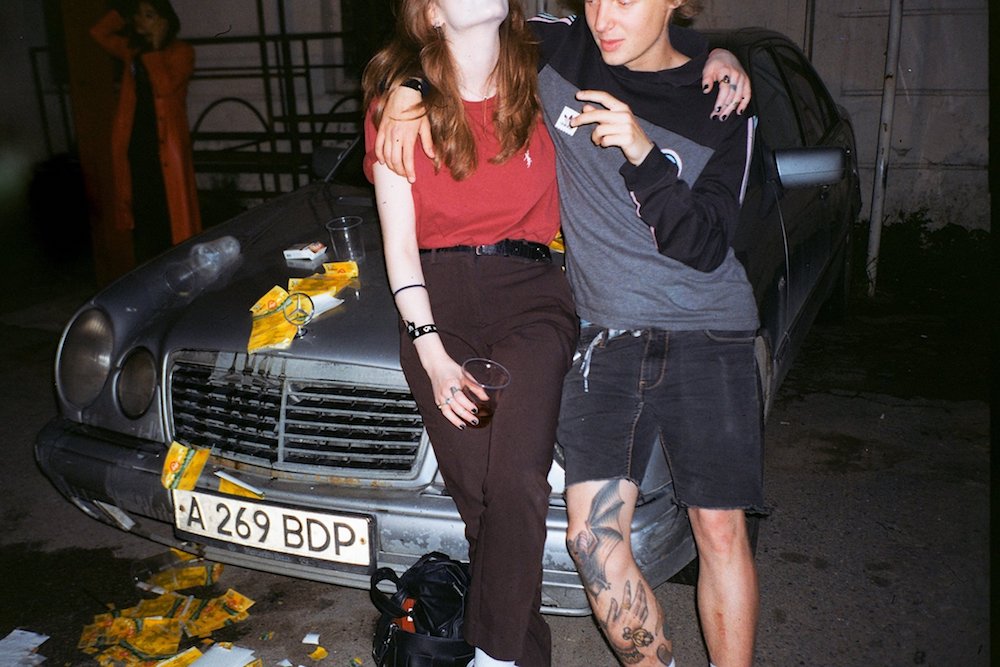
“We work together with the past, but we also go against it.”
ZVUK purposefully seeks out historical physical structures for events; factories, theatres, old cinema basements. Nazira and her team go on scouting trips in different areas of Almaty, sharpening their negotiating skills to strike deals with owners who often have little idea about the nature of events thrown on their grounds.
Part of the reason for choosing these buildings is they’ve never been used as club spaces, providing a clean canvas to unleash unnerving beats and start new dialogues. Nazira’s generous vision and group-oriented mindset, coupled with the intended collective use of the buildings ZVUK uses, feeds into the party’s underlying utopian spirit.
But despite Nazira’s team’s tireless efforts to foster a strong musical community in Almaty, there is one major obstacle. Many young people leave Kazakhstan, tempted by opportunities elsewhere. Nazira understands the reason behind this brain drain, though; finding a good job in Kazakhstan is actually quite difficult and salaries are low. “There’s no middle class here. When people are broke, they can’t go out at all,” says Nazira. “You can’t blame them, they’re trying to do what’s best for them.”
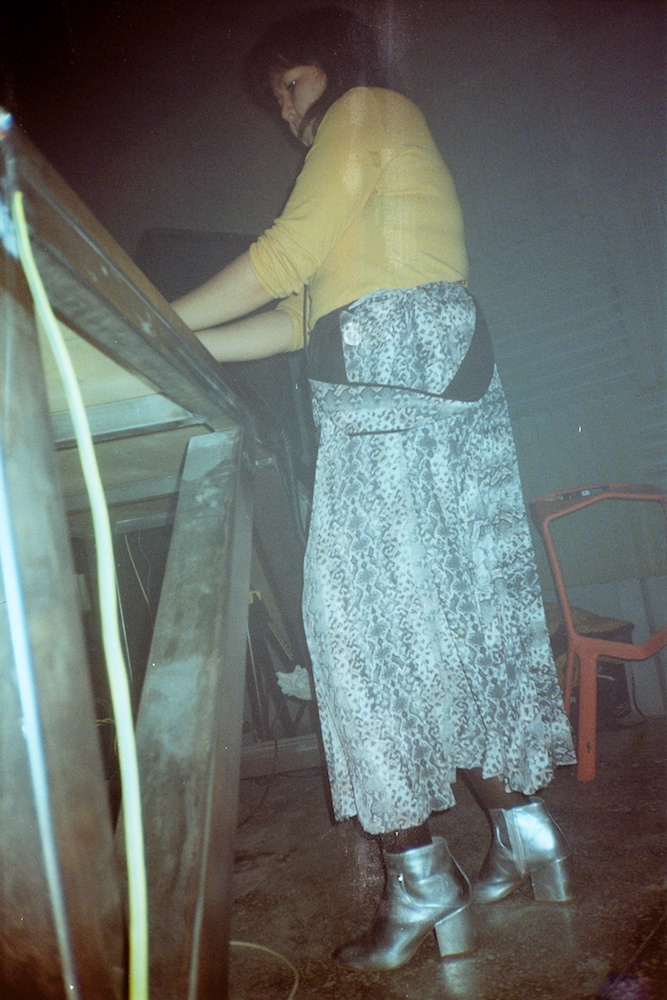
It's no surprise then that three out of five people profiled in Mixmag’s New East article last year have since left the country. Despite all this, Nazira remains firmly rooted in Almaty. The relative isolation that stems from living there keeps her grounded and gives her focus, fuelling her creative life. “It’s a struggle here but I owe a lot to being in Kazakhstan. Being at home for long periods of time means I’m less distracted.” Thriving on the margins of the global club scene, while being connected to it, gives Nazira a stronger sense of what ZVUK is, and why it is so needed.
Three years on, I wonder if she already sees the impact of starting an alternative club night in Almaty. "100%,” she responds, pointing out the recent booking of Giant Swan, Via App, An-I and Don't DJ as examples of ZVUK’s increasing curational bravery. “Having artists that are quite avant-garde even in Europe, playing for people who’re not even exposed to straight techno that much... it’s blowing their minds. I think when you’re exposed to new things, you’re more vulnerable. Some people close off for sure, but most end up feeling super free."
Photography courtesy of Dariya Orazbayeva, Yury Matiyun Written by Anaïs Brémond - follow her on Twitter
ZVUK CUTS
To complement the above article Nazira has put together a selection of club tracks that embody the ZVUK vibe. "When choosing these tracks I kind of went with music that felt special in the context of ZVUK, which kind of has some story. not just top tracks we think are sick."
**Giant Swan - The Plaque **
"Giant Swan spent almost a week in Almaty when they came to play at ZVUK. We’ve spent a lot of time together and by the end of it we really didn’t want to let them go, and it seemed they didn’t want to leave. They make music where their raw energy shows, they are just being themselves and being open, and they are the same way in real life. This was the track I finished my set with at the party they played. Everyone was so into the whole thing when they were playing and it felt special to round off with their music too."
**Aphex Twin (AFX) - Elephant Song **
"It was a track during which some people started moshing. To Aphex Twin. It was not aggressive, more expressive and it was very funny to watch how confused some people were. This kind of forms of expression is what I love ZVUK for."
Vault - Up Through The Concrete
"This track was played by An-I during his sick set. Everyone just went crazy and the energy was at its peak. That party we held in one of the rooms of an old cinema. It was a big room with high ceiling and columns. That moment everything just worked - music, people, space and the whole idea of ZVUK was clearly seen."
Bruce - What
"Bristolian music unsurprisingly plays a big role in ZVUK. Although pretty recent, this track from Bruce is probably the most ID’d track at our parties. The latest ZVUK party was in a small venue with a very busy bar, everyone who was not on the dancefloor rushed to it when it played. You can literally see people running and leaving their drinks behind."
A part of Contemporary Scenes, a BR series uncovering underground collectives, artists and subcultures from across the world
